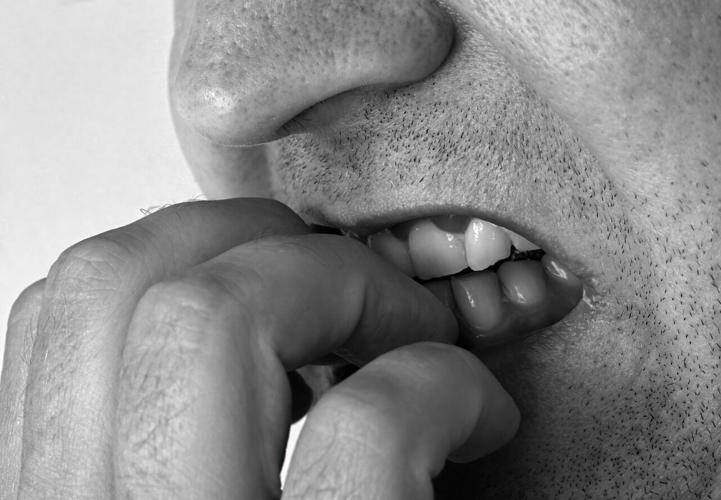
Battling with the urge to bite your nails? You're not alone. This common habit often stems from stress or boredom, but it's time to break free. Follow these simple tips to keep your nails healthy and intact, transforming this nervous habit into a thing of the past. Let's dive into strategies that will help you achieve and maintain beautiful, strong nails, starting today!
Understand the Disorder
Nail biting, or onychophagia, is often considered a response to stress or anxiety, and recognizing it as a disorder is crucial in addressing the underlying issue. You can't learn how to stop biting your nails until you acknowledge this pattern as more than a bad habit and can validate the emotional triggers that contribute to it. Understanding that nail biting may be connected to psychological conditions such as Obsessive-Compulsive Disorder (OCD) or Attention Deficit Hyperactivity Disorder (ADHD) can lead to a more compassionate and comprehensive approach to treatment.
This awareness enables individuals to seek appropriate therapeutic support, employ targeted strategies, and develop healthier coping mechanisms. Furthermore, by appreciating the complexity of the disorder, those affected can establish more realistic expectations for their recovery journey, mitigating feelings of guilt or frustration that may arise during setbacks, thus promoting a more positive pathway to behavior change.
Identify Triggers
Identifying triggers is a pivotal step in the process of overcoming nail biting. This compulsive behavior is often not a consciously controlled action but rather a reflex in response to specific emotional or environmental stimuli. By pinpointing the exact moments or situations that prompt the urge to bite, individuals can begin to build awareness and implement preventative strategies. Whether it’s stress, boredom, anxiety, or perhaps perfectionism driving the desire to 'fix' irregularities in nail shape, knowledge of these triggers creates a foundation for targeted behavior modification.
For example, someone who bites their nails in times of stress might benefit from stress-management techniques or engaging in alternative activities, like squeezing a stress ball. Another might find that keeping their hands busy with crafts or texting can prevent mindless biting during moments of boredom. This personalized approach is crucial when it comes to replacing the nail-biting habit with healthier, more constructive behaviors, ultimately leading to successful long-term cessation.
Find Healthy Alternatives
Every bad habit can be substituted with a healthier alternative. When it comes to nail biting, here are some options:
- Chew gum
- Use a stress ball
- Fidget toys
- Keep hands busy
- Practice deep breathing
- Apply hand cream or lotion
- Wear gloves or bandages
- Keep a nail care kit
- Celebrate success
- Seek support
Replacing the negative action with positive behaviors allows individuals to satisfy the physical compulsion without damaging their nails. By engaging in activities such as chewing gum or using a stress ball, the hands, and mind are occupied with benign tasks that redirect the urge to bite. Consistent use of these alternatives helps to rewire the brain's response to stressors, gradually erasing the learned nail-biting behavior and reinforcing new, beneficial patterns that promote nail health and overall well-being.
Keep Your Nails Trimmed
It's considerably more difficult to bite your nails if there's less nail available to grasp with your teeth. By keeping nails short, you remove the temptation and the very possibility of engaging in the habit. Short nails leave little to fiddle with or fixate on, which is particularly effective for those who bite their nails as a way to 'correct' perceived irregularities or imperfections in their nails.
What's more, well-trimmed nails are often less satisfying to bite. They don’t give the same sensory feedback that longer nails might when bitten into, which can diminish the gratification that perpetuates the behavior. Regular trimming also ensures that nails are smooth and free from snags that might catch your attention or trigger the urge to bite. By incorporating nail maintenance into your routine, you can actively remove one of the most common provocateurs of nail biting and take a proactive step towards healthier habits.
Practice Stress-reduction Techniques
Stress is a significant trigger for many individuals who engage in onychophagia. By learning and practicing stress-management methods such as deep breathing exercises, meditation, yoga, or even simple mindfulness practices, one can mitigate the anxiety that often leads to the unconscious decision to bite their nails. These techniques promote relaxation and can offer an immediate alternative to nail biting when the urge arises.
Over time, utilizing these methods can decrease overall stress levels, making nail biting less frequent and less appealing. Additionally, the act of redirecting focus towards a calming activity fosters greater emotional resilience, which is not just beneficial for nail health but also holistically enhances one's well-being.
Keep Your Hands Busy
When your hands are occupied, it disrupts the automatic pathway to biting, essentially creating a physical barrier to the action. Activities that involve hand movements, such as knitting, drawing, or even handling a fidget spinner, provide a sensory and motor substitute that engages the fingers and diverts impulses away from your nails.
This redirection of energy not only prevents the act of biting but also gradually retrains your brain. Over time, the inclination to bite nails in response to certain triggers will decrease as your hands grow accustomed to alternative, more productive actions.

Reward Yourself
Rewards serve as positive reinforcement, a powerful psychological principle that encourages the repetition of desired behavior. Create small, attainable goals and treat yourself whenever you meet them. This could be a manicure after a week without biting or a new book after two weeks.
This system not only motivates you to maintain your new behavior but also helps to replace the temporary satisfaction of nail-biting with the more lasting pleasure of self-congratulation. As these milestones accumulate, the brain begins to associate not biting nails with a feeling of accomplishment and reward, making the practice of healthy habits much more appealing and sustainable in the long term.
Consistency is key, and you've got this! By putting these strategies into practice, you're on your way to overcoming nail-biting. Remember, every step forward is progress, and each day without biting is a victory. Celebrate your accomplishments and keep pushing forward. You deserve the confidence and comfort that come with healthy, strong nails. Let your hands express your determination, not your stress.



(0) comments
We welcome your comments
Log In
Post a comment as Guest
Keep it Clean. Please avoid obscene, vulgar, lewd, racist or sexually-oriented language.
PLEASE TURN OFF YOUR CAPS LOCK.
Don't Threaten. Threats of harming another person will not be tolerated.
Be Truthful. Don't knowingly lie about anyone or anything.
Be Nice. No racism, sexism or any sort of -ism that is degrading to another person.
Be Proactive. Use the 'Report' link on each comment to let us know of abusive posts.
Share with Us. We'd love to hear eyewitness accounts, the history behind an article.